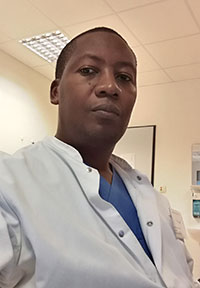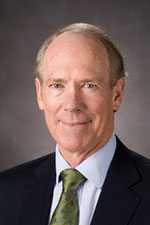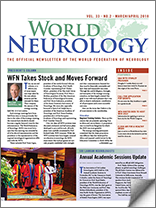Training Dates:
Nov. 6-Dec. 4, 2017
The overall objective of my neurology department visit was capacity-building and strengthening of basic skills training in integrated management of essential emergency care in stroke, other neurological conditions, and procedures at Ruhr University Hospital for Neurology.

Martin Kaddumukasa, MD
Specific Objectives
I trained in the use of the “Integrated Management Package on Stroke Emergency and Essential Stroke Care.” This included thrombolysis, exposure to new techniques and treatment modalities, specialist for education, and existing training programs. The training allowed me to improve knowledge and professional skills in stroke care in the five selected areas: neuroimaging, thrombolysis, inpatient care, transcranial Doppler scanning, and intensive care.
Achievements
This training exposed me to the following neurology areas to which I hadn’t been exposed before:
- Multiple sclerosis care and management
- Intrathecal treatment options for MS
- Intensive care patient nutrition
- Use and interpretation of ICU monitors
- Management of seizures in stroke
- Thrombolysis
- Stroke diagnosis via trans-cranial Doppler scan
From the training, I am able to identify the gaps in stroke care protocols in Uganda from emergency patient assessment with international assessment scale, timely patient management, active rehabilitation, and 24-hour patient evaluation.
Acknowledgements
Special thanks to World Federation of Neurology and German Neurological Society for funding this training fellowship. In addition to the head of the neurology department, Prof. Dr. Med Ralf Gold, head of stroke and intensive care unit PD Dr. C. Krogias and all staff of Bochum Hospital. •



